Today’s Current Affairs: 19th Jan 2024 for UPSC IAS exams, State PSC exams, SSC CGL, State SSC, RRB, Railways, Banking Exam & IBPS, etc
Table of Contents
National Essential Diagnostics List : Review

The Indian Council of Medical Research (ICMR) has begun the process of revising the current National Essential Diagnostics List (NEDL) and invited relevant stakeholders to offer suggestions on adding or deleting diagnostic tests to the current list by the end of February.
- National Essential Diagnostics List the essential and most basic tests that should be available at various levels of healthcare facilities in the country, including at the village level, in sub-health centres, health and wellness centres, and primary health centres.
- The ICMR had released the first NEDL in 2019 to make the availability of diagnostics an essential component of the healthcare system.
- The list includes general laboratory tests for a broad range of common conditions for the diagnosis of communicable and non-communicable diseases, disease-specific tests for HIV, hepatitis, tuberculosis, dengue, malaria, and area-endemic diseases.
- India is the first country to release the NEDL.
- Since 2018, the World Health Organisation (WHO) recommends the development and implementation of a National Essential Diagnostics List (NEDL) to facilitate the availability of In-Vitro Diagnostics (IVDs) across the various tiers of the healthcare pyramid, facilities with or without a laboratory onsite.
SHRESHTA Scheme : Issued Instructions For Residential Private Schools
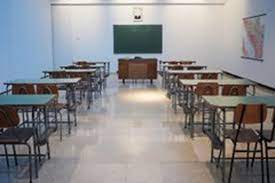
The Central Board of Secondary Education (CBSE) recently issued instructions for Residential Private Schools interested in joining SHRESHTA Scheme.
- Scheme for Residential Education for Students in High Schools in Targeted Areas (SHRESHTA) aims to provide access to the best private residential schools for meritorious students from Scheduled Caste (SC) communities.
- It will provide scholarships to meritorious students from SC communities to study in private and NGO-run residential schools for Classes 9-12.
- The scheme is expected to provide admissions to around 3,000 students in Classes 9 and 11 each year.
- The core objectives of the scheme are to enhance the reach of the development initiatives of the government and fill in the gap in service-deprived SC dominant areas in the education sector.
- The scheme will collaborate with voluntary organisations to provide an environment that can help create conditions for socio-economic upliftment and the overall development of the SC communities.
- The Department of Social Justice and Empowerment, Ministry of Social Justice & Empowerment.
- Students whose annual parental income is less than Rs 2,50,000 and who belong to SC communities are eligible to participate in this scheme.
- Only those candidates who have passed or are appearing in Class VIII/X in the given academic session can apply for admission to Class IX/XI.
- The scheme will cover the tuition fee, the hostel fee, and the mess fees for qualifying students.
Startup Ranking For 2022:

Karnataka, Gujarat, and Kerala have been recognized as the best-performing states in developing start-up ecosystems, according to the start-up rankings for 2022 released by the Department for Promotion of Industry and Internal Trade (DPIIT).
Key Findings:
- Tamil Nadu and Himachal Pradesh are also highlighted as best performers, while Maharashtra, Odisha, and Telangana are categorized as top performers.
- The rankings are based on the state’s initiatives to foster a conducive environment for start-ups, with a total of 33 states and Union territories participating in the assessment under five categories – best performers, top performers, leaders, aspiring leaders, and emerging start-up ecosystems.
- The States’ Start-up Ranking is a yearly capacity-building exercise created and released by DPIIT that evaluates all of India’s states and Union Territories on their efforts to build an ecosystem conducive to start-up growth.
Shankaracharyas : Not Attend Ram Temple Inauguration
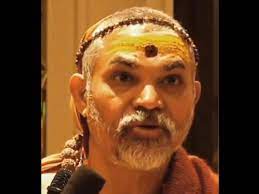
The four shankaracharyas, heads of Hindu monasteries founded by Adi Shankara, will not attend the inauguration of the Ram temple in Ayodhya on January 22
- Amid the buzz around the consecration of Ram Temple in Ayodhya on January 22 by Prime Minister Narendra Modi.
- Karan Thapar interviewed the Shankaracharya of Jyotish Peeth, Swami Avimukteshwaranand Saraswati.
- All four Shankaracharyas have noted their objection to the consecration, underscoring that Hindu Shastras do not permit performing the consecration of a deity in an incomplete temple.
- They also noted that January 22 falls in the lunar month of Paus, which is inauspicious for the ceremony.
- Shankara’s legacy includes a near nationalistic vision with his mathas binding a Hindu India spanning geographical and political divisions.
- As faith custodians occupying the corners of India, the matha heads carry enormous symbolic weight.
Centre For Fourth Industrial Revolution (C4IR) : Hyderabad

Telangana has signed an agreement with the World Economic Forum (WEF) to establish the Centre for Fourth Industrial Revolution (C4IR) in the state capital, Hyderabad.
- C4IR stands for the Centre for Fourth Industrial Revolution.
- It is an initiative by the World Economic Forum (WEF) to establish centres that focus on harnessing the potential of the Fourth Industrial Revolution (4IR) technologies and driving collaboration between governments, businesses, and academia to address global challenges and opportunities.
- The collaboration aims to leverage technology for advancements in the life sciences and healthcare sector, with a focus on reaching healthcare targets for the state’s population.
- Telangana envisions becoming a health tech hub and a global destination for healthcare services.
- The Fourth Industrial Revolution (4IR), also known as the Digital Revolution, is characterized by the integration of technologies that blend the physical, digital, and biological realms. Coined by Klaus Schwab, Founder and Executive Chairman of the WEF, 4IR includes technologies such as IoT, robotics, VR, AI, quantum computing, and 3D printing.
- It brings about advancements in technology, boosts productivity and efficiency, contributes to economic growth, and facilitates good governance.
World Economic Forum : Annual Meeting
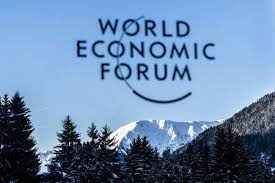
The World Economic Forum (WEF) is holding its Annual Meeting from 15th January to 19th January, 2024 in Davos, Switzerland.
World Economic Forum (WEF):
- WEF is the International Organization for Public-Private Cooperation.
- The Forum engages the foremost political, business, cultural and other leaders of society to shape global, regional and industry agendas.
- It is headquartered in Geneva, Switzerland.
- Klaus Schwab, a German professor with a background in mechanical engineering and a Master of Public Administration from Harvard, founded WEF in 1971, originally known as the European Management Forum.
- He introduced the concept of “stakeholder capitalism.”
Veerabhadra Temple : Prime Minister Visit
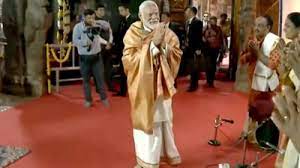
The Prime Minister visited the Veerabhadra temple in Lepakshi, Andhra Pradesh, during his 11-day special ritual for the consecration of Lord Ram’s idol at the Ayodhya Ram temple.
- Lepakshi holds significance in the Ramayana, and its name, meaning ‘Rise, oh bird’ in Telugu, is a tribute to Jatayu, the mythical bird who fought Ravan.
- According to the Ramayana, Jatayu fell wounded in Lepakshi after battling Ravan, and it is here that he informed Lord Ram about Sita’s kidnapping.
- The temple is believed to have preserved the footprints of Goddess Sita.
- The Veerabhadra Temple, also known as the Lepakshi Temple, is located in the Anantapur district of Andhra Pradesh.
- The temple was built in 1533 by the Vijayanagara rulers.
- It is known for its architecture, which includes hanging pillars and cave chambers.
Chang’e 6 Mission : Status

The China National Space Administration (CNSA) recently announced that the Chang’e 6 sample return mission is on track to land on the surface of the Moon in the first half of 2024.
- The Chang’e 6 mission is a planned lander designed to return samples from the lunar south pole.
- The mission aims to land on the Moon, collect samples from the lunar surface, and return them to Earth.
- This process will contribute crucial data to unravel the Moon’s geological mysteries.
- Representing the first attempt to retrieve samples from the far side of the Moon, Chang’e 6 is set to bring back up to two kilograms of lunar samples, adopting a configuration similar to the successful Chang’e 5 mission.
- The mission involves international collaboration, with payloads from the European Space Agency (ESA) and the French space agency CNES.
- ESA contributes a lunar surface ion tester, while CNES provides equipment for measuring radon gas and its decay products.
- Additionally, an Italian laser corner reflector for radar instrument calibration and Pakistan’s ICUBE-Q CubeSat will be part of the mission.
12th General Assembly Of The Asian Buddhist Conference For Peace:
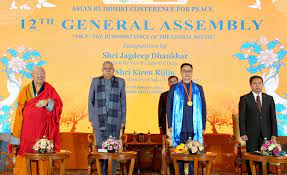
The Indian Vice President recently inaugurated the 12th General Assembly of the Asian Buddhist Conference for Peace in New Delhi.
- Asian Buddhist Conference for Peace (ABCP) was founded in 1970 in Ulaanbaatar, Mongolia, as a voluntary movement of followers of Buddhism with both monastic (monks) and lay members.
- Its aim is to bring together the efforts of Buddhists in support of consolidating universal peace, harmony, and cooperation among people in Asia.
- It is currently headquartered at the Ganden Tegchenling Monastery in Ulaanbaatar, Mongolia, and the Supreme Head of Mongolian Buddhists is the ABCP President.
- It drew active participation from Mongolia, Japan, India, Laos, Vietnam, Cambodia, Bhutan, Russian Far East, Sri Lanka, Thailand, and other regional countries.




